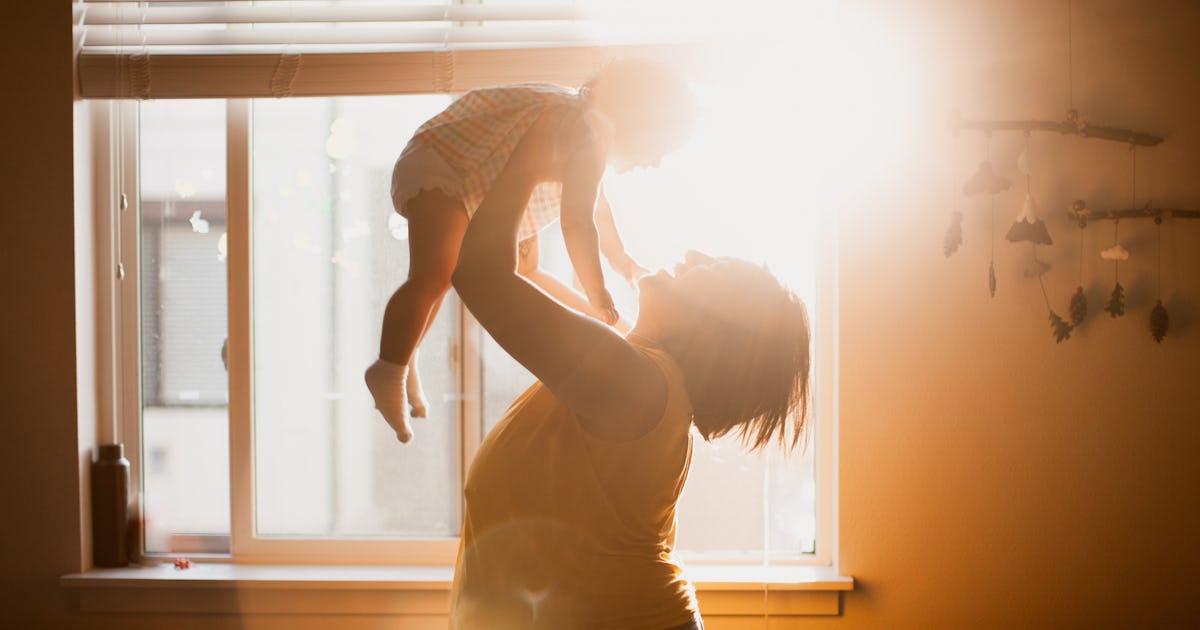Here are some of the things I remember: the physical liberty I felt the moment I pushed each one of my kids out of my body; the surprise of realizing that, despite all my efforts and commitment to “the healthier option,” I absolutely hate breastfeeding; the peace that settles in when all my kids are tucked into bed (and the freedom of having a glass of wine on the porch afterward); the heartbreak involved in watching a friend of my child’s be mildly rude to them or not laugh at their joke; the toll motherhood takes on a marriage and how hard you have to work to minimize its effects.
And here, in turn, are some of the things I forgot: the depravity of waking every three hours with a newborn; the stress of coordinating rides, juggling carpools and anxiously hoping you signed them up for “enough” (enough sports, enough music lessons, enough playdates to help shape them into happy, confident people); the arguments I had with my toddlers over broken toys or the color of a cup. But also: what it feels like to sleep in on a Sunday. What it feels like to be effortlessly lean.
And then there are the things I’m slowly forgetting but desperately want to hold on to, like the sensation of a human kicking inside of me — not just the early flutters, but those visceral, almost jarring movements that feel like a scream that says, I am here too.
Motherhood is often described as a balancing act — juggling schedules, ambitions, emotional labor, marital needs. But nearly seven years into marriage and four kids later, I’ve come to believe that motherhood isn’t simply about balance. It’s about memory. It’s about navigating the relentless, complicated push and pull between remembering and forgetting.
In a strange way, we move through our days propelled by this dance of memory and amnesia.
It’s a paradox: Motherhood both erases and imprints. It turns fleeting moments into the building blocks of identity… or maybe into measuring sticks we subconsciously use to judge ourselves. Am I a good mother? Am I a bad one? Did I show up enough? Love enough? Let go at the right time?
Because, really, who would willingly choose to have another baby while actively living through the brutal realities of newborn life? The sleepless nights, sore breasts, and mood swings so volatile they leave you sobbing in front of random visitors. None of it is easy on a woman’s body — or her mind. Imagine deciding to do it all over again if you remembered every moment with perfect clarity.
From another angle, what we lose when becoming mothers is just as significant as what we gain from it. If we remembered exactly what our bodies felt like before becoming vessels for life, would we volunteer again? If we could fully access the independence we once had — the quiet, the autonomy — would we so readily surrender it?
But the forgetting and remembering doesn’t stop once the kids sleep through the night or start school. It continues, subtly, as they grow.
I imagine you forget what their toddler voice sounded like, just like I’ve forgotten what my now 5-year-old’s baby hands felt like curled around my finger when she was just born. I’m slowly forgetting the milestones that once loomed large: her first steps, her first words. And she’s my oldest.
Although an almost incomprehensible thought now, I might one day even forget the way she looked at me the first time she got off the bus — excited, proud, ready to be celebrated by her mother — using my brain space to, instead, remember her face when she went off to college.
Perhaps, as time goes on, when they’re married adults navigating parenthood themselves or college students calling home from a dorm room, a memory of my kids might resurface suddenly and sharply. A lunch I once packed or a Band-Aid I once applied. In that moment, I imagine I’ll feel two things at once: the ache of what’s gone and the weight of everything I gave.
As my own mother always tells me, motherhood doesn’t end when our children are grown. It shifts. It stretches. It asks different things of us. We continue to forget, and to remember, and to worry about doing either.
I’ve heard older mothers say they barely remember the chaos of raising small children. A friend whose son is now 6 months old just recently told me she forgot all about the sleepless nights she endured just three months prior.
These mothers recall the contours of that life, but not its daily texture. Instead, their memories sharpen around bigger emotional moments: the time their adult child called crying after their first breakup, or my friend’s 6-month-old’s first proper meal that didn’t involve a milk bottle. The pride they felt watching their kids walk across a graduation stage. The helplessness of seeing their child struggle with infertility orsetbacks. The joy — and strange disbelief — of watching them parent.
Motherhood is a lifelong exercise in evolving love, and so it’s also a lifelong exercise in evolving memory. You don’t stop caring, but your role changes. So do the stories you tell yourself about the past.
It turns out, this selective remembering isn’t just a quirk of motherhood; it’s a survival mechanism.
“It’s not that we control our memory, it’s that we do have the ability to control our attention,” explains clinical child psychologist Dr. Robyn Koslowitz. “When we’re paying attention to one aspect of an experience, we sometimes pay less attention to another. In fact, psychotherapy for trauma allows us to take the same memory and attend to a different aspect of it in order to reprocess it. We don’t change the memory; we change the parts we focus on.”
Neurological research backs this up. A landmark study published in Nature Neuroscience found that pregnancy induces long-term changes in a mother’s brain, particularly in areas related to empathy, emotional regulation, and social cognition. Gray matter volume decreases in certain regions — not because the brain is shrinking, but because it’s specializing. It’s becoming more efficient at recognizing and responding to a baby’s needs. These changes can persist for years after birth.
Other research, including from the Francis Crick Institute, suggests that pregnancy hormones activate neural circuits in ways that prepare the brain for caregiving. This neurological reshaping continues well into the postpartum period and, in some cases, for a lifetime.
So it’s no wonder we forget the logistics and retain the essence. The brain isn’t malfunctioning; it’s adapting. It’s prioritizing.
We remember whatever roots us. The rest fades away or, quite possibly, we push away. A gracious act, if you ask me. We forget what we must in order to keep going, whether that involves another baby, a teenager’s rebellious years, or the quiet pride of watching your child become a parent themselves.
Maybe that’s the secret to enduring it all — not because we’ve lost our minds, but because we’ve learned to hold on to just enough. Perhaps, that’s the secret to life overall.
Disclaimer: This content was automatically imported from a third-party source via RSS feed. The original source is: https://www.scarymommy.com/parenting/forgetting-and-remembering-in-motherhood-science-of-memory. xn--babytilbehr-pgb.com does not claim ownership of this content. All rights remain with the original publisher.



